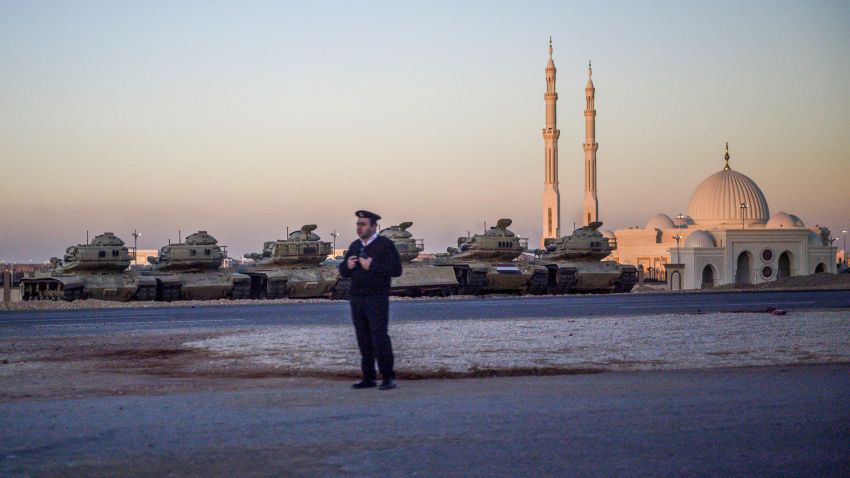It doesn’t seem like an accident that Egypt’s prime minister, Mostafa Madbouly, used to be the country’s housing minister and, before that, the head of the government agency that came up with elaborate, mostly unrealistic urban development plans, including one that reimagined Cairo as Dubai in the Nile Valley. Since President Abdel Fattah el-Sisi took power in a coup in 2013, he has set out to build. Canals, bridges, cities—they are all part of an old school nationalist development agenda redesigned for the 21st century. Taking their cues from recent building sprees in China and the Gulf states, Sisi’s megaprojects are meant to attract foreign investment, buttress his grand ambitions of providing jobs and reviving the economy, and keep the rest of the regime happy, since Egypt’s military is basically building everything. Sisi needs his prime minister to see them through. At least, that was the plan.
Four years ago, there was an unnecessary expansion of the Suez Canal, with work done overtime, and at huge cost, to stick to a hasty deadline devised above all to promote Sisi and his “vision” for Egypt. That was soon dwarfed by plans for a new capital—farther outside Cairo than the dozens of other satellite cities that ring its desert edges, including New Cairo, which was built under Hosni Mubarak and still has only a fraction of the residents that its planners once projected. Most of those satellite cities fed rampant and often corrupt real estate speculation under Mubarak, most of it on state-owned land controlled by the military. Sisi picked up where Mubarak left off, promising a new “smart” capital city with a long list of improbable amenities rising in a stretch of vacant desert halfway to the Suez Canal.
But now, Sisi’s grand new city, which already seemed like a boondoggle from the moment it was announced at a 2015 conference for international investors in the Red Sea resort of Sharm el-Sheikh, is running out of money. The project has had various budget estimates, all outlandish and totaling $50 billion or more. The initial Gulf investors, from the United Arab Emirates, were the first ones to back out; then the Chinese did, after committing to a first phase of construction. The Housing Ministry—Prime Minister Madbouly’s former haunt—and the army’s engineers are now in charge.

